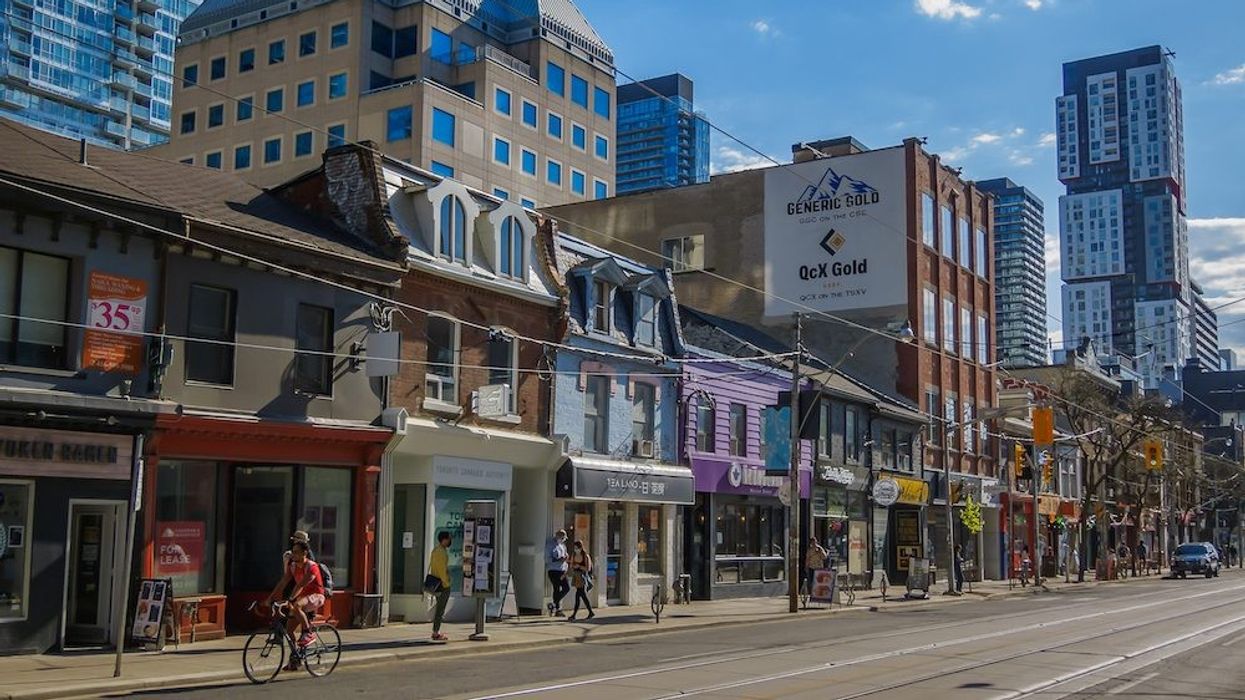A recent study suggests small businesses in Ontario should have the benefit of rent control like residential tenants do, but the feasibility is questionable.
Ahead of the June 2 provincial election, Better Way Alliance, a coalition of progressive entrepreneurs, released a study called Out of Control in which it lobbies Ontario’s Progressive Conservative government to institute rent control for small businesses. Additionally, it wants the creation of tribunal to hear commercial lease disputes similar to the residential Landlord and Tenant Board.
The coalition would also like to see more standardized commercial leases.
Out of Control surveyed and interviewed more than 50 small business owners between 2020 and 2022 in sectors ranging from hospitality to finance and determined that nine in 10 listed rent as one of their three biggest expenses. Over half reportedly spend more than 60% of their overall expenses on rent, and around 75% have experienced rent increases in excess of 10%.
Ten percent said their rent has doubled in a single increase.
“The lack of guidelines for commercial rent increases means rent can double overnight,” the study said. “The majority of business owners have experienced large rent increases. Three quarters of businesses have experienced a one-time rent increase of 10% or more, 17% experienced an increase of 50% or more, and 12% have actually had their rent more than double in a single increase.”
Agreeing to Market Value
However, commercial leases are far more complicated than residential ones, says Ori Grad, a real estate broker and Managing Director of CHI Real Estate in Toronto. Not only do tenants agree to the terms before signing the dotted line, they typically have lawyers scrutinize the contracts first. Moreover, because of the vast natures of commercial enterprises, a one-size-fits-all lease isn’t realistic.
“There is very clear wording in leases that rent is based off of market values, and if they cannot come to an agreement it goes to binding arbitration.” Grad told STOREYS, adding that commercial leases are usually signed for five- or 10-year terms, meaning landlords can’t suddenly hike rents. “Who’s to say landlords can’t adjust rents to market value when the lease runs out? If the government put a restriction in saying you cannot charge market rent, that means the landlord is not able to get what somebody else is willing to pay and that reduces the value of the building.”
READ: Canadian Business Insolvencies Just Hit a 35-Year High
The ramifications to realizing Out of Control’s ambitions could be financially ruinous and investors would steer clear of cities with commercial rent control, Grad added.
“Buildings are expensive and have giant mortgages, and you need tenants to pay those mortgages,” he said. “When a tenant’s lease is up for renewal and you were to put restrictions on it and say ‘Your rent is 40% below market value,’ well, should a landlord not be able to charge market value to somebody else? These are investments. If you restrict investing in Ontario, or a city like Toronto, you’ll see investors flood out of this market. Why would they be in Toronto when they could make more money somewhere else? I wouldn’t be buying a building here.”
Ryan Mallough, Senior Director of Provincial Affairs for Ontario at the Canadian Federation of Independent Business (CFIB), is aware of the study and confirms that rent is an issue for some of the organization’s membership.
“It depends on the business. We have heard some horror stories from business owners about rent increasing a fair bit, especially those whose leases have expired or were up during the pandemic period, especially given the [COVID-related] closures in Toronto were a little bit harder than some other jurisdictions in Ontario,” he said.
“I wouldn’t say we’re getting absolutely flooded with calls on it, either. Equally on the commercial side of things, there’s still a lot of property tax frustrations, other property-related costs, energy in particular has been a source of frustration as well, so it’s an issue that’s on our radar but it hasn’t blown up yet.”
While the average COVID debt for small businesses in Ontario has decreased to about $160,000 -- it excludes other non-pandemic-related debts -- that isn’t to say rents won’t become an issue during the post-pandemic recovery period, Mallough added. The CFIB will survey its members to see if there’s an appetite to put commercial rent control on the provincial parties’ radars prior to the June 2 election, but he noted that some members are landlords and might not be so amendable.
“We’ve also heard the idea that if rent control is in place, then leases become month-to-month, or a year long or a couple of years long, to give the landlord more flexibility,” Mallough said. “Property taxes, and where those are going, will also factor into it; mortgage rates and interest rates, of course, appear to be going up, and are likely going up for the next while too, and that will factor into it, so I think it’s an idea that’s on the table.”
When an idea is on the table, the CFIB goes to its membership for a “temperature check.”
“I’m sure it will pick up steam as we head into the election but we really want to make sure we know how it will work and what the possible consequences of it might be before we go down that road.”





















